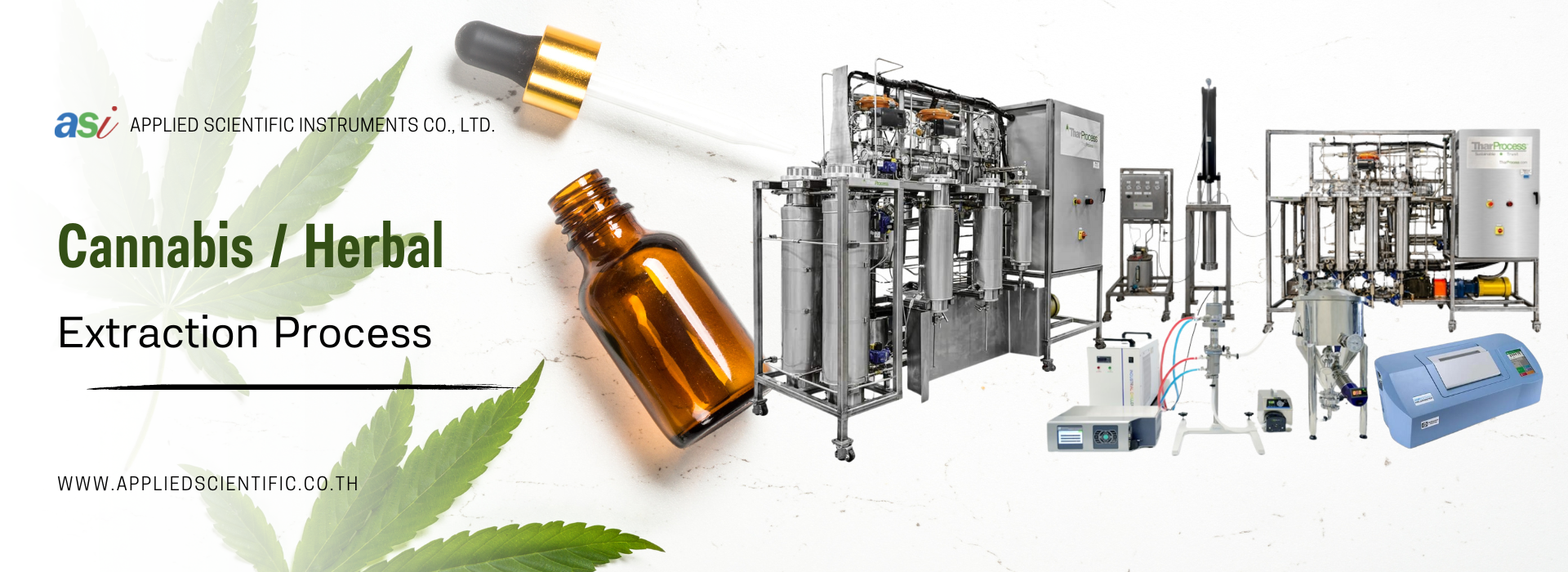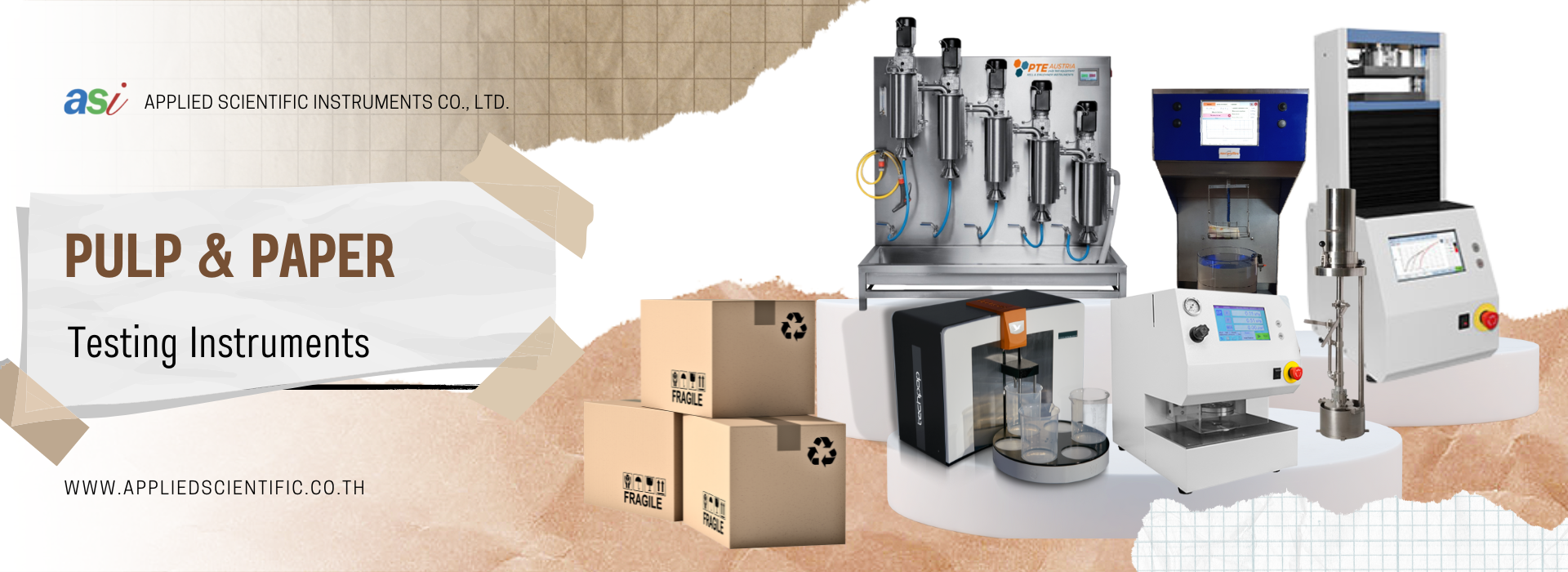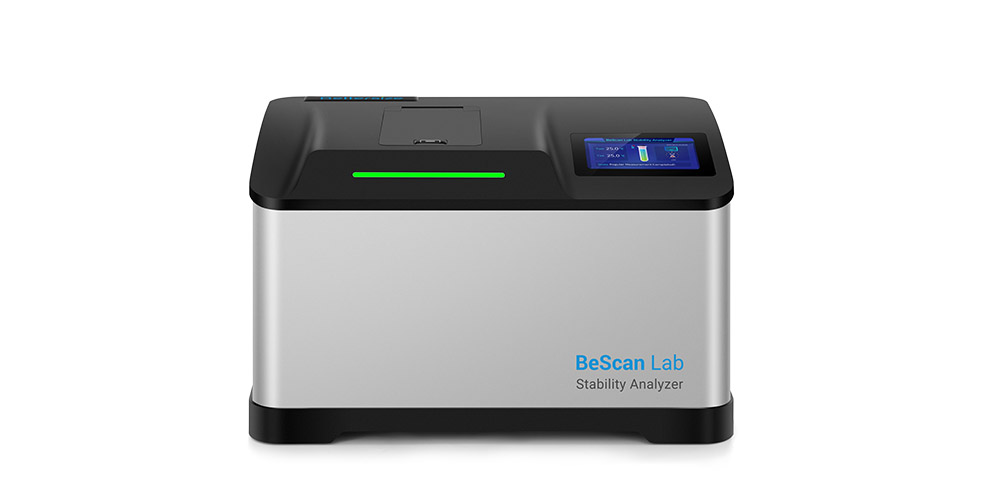
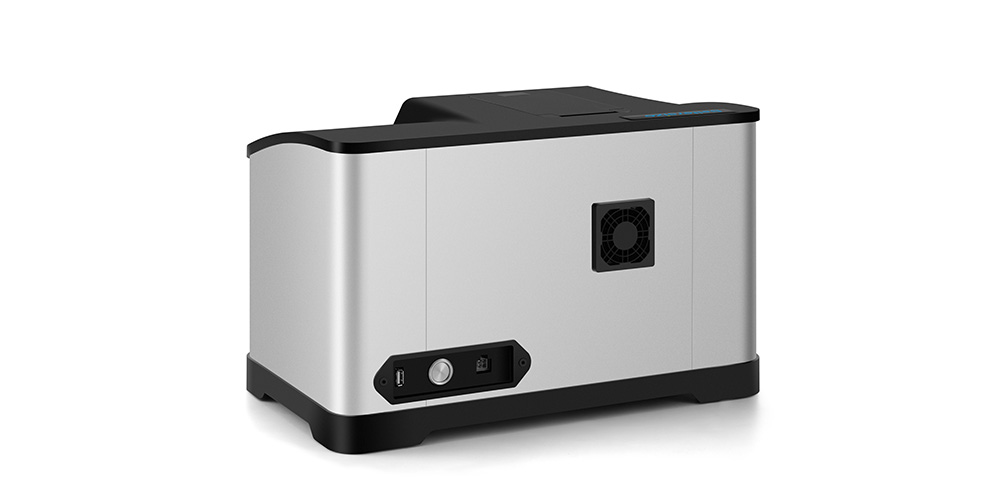
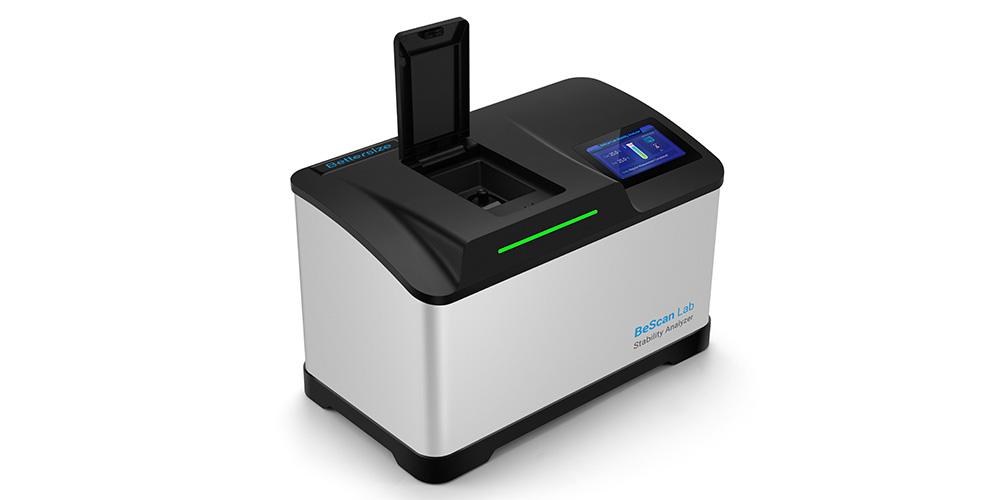
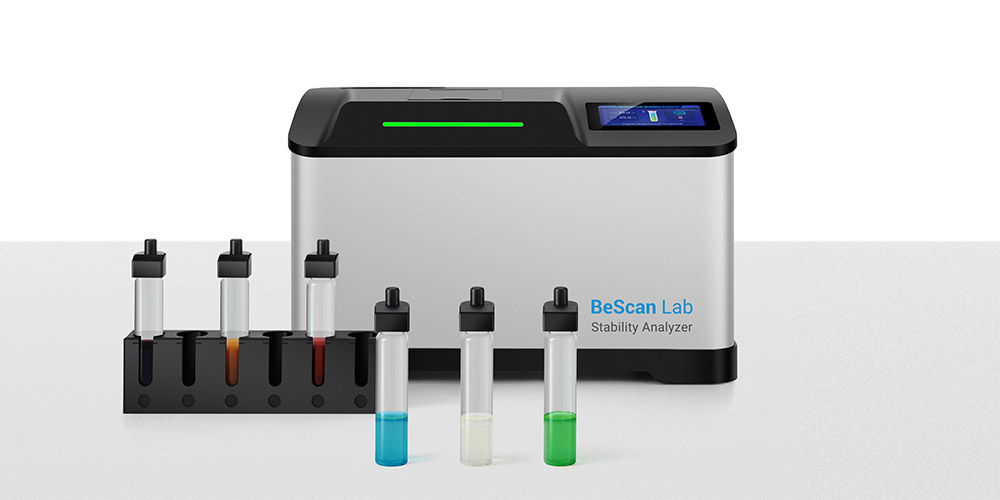
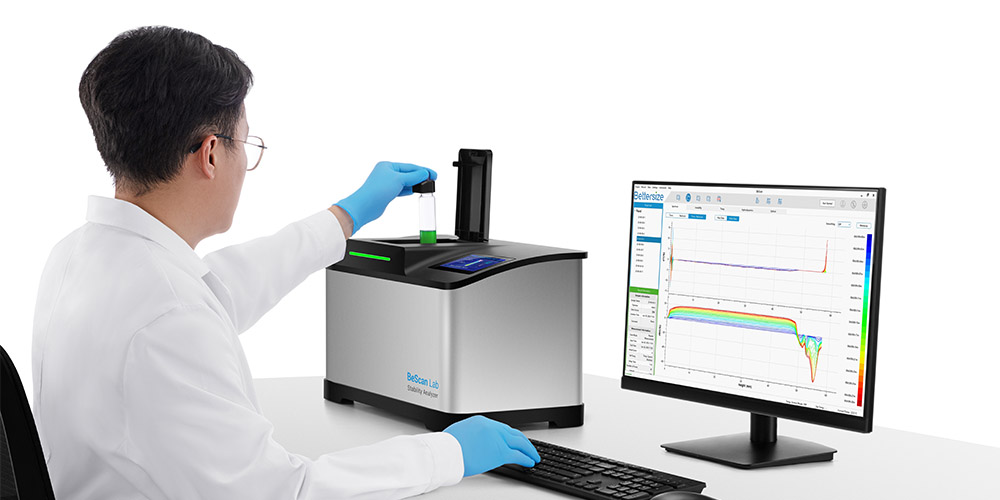
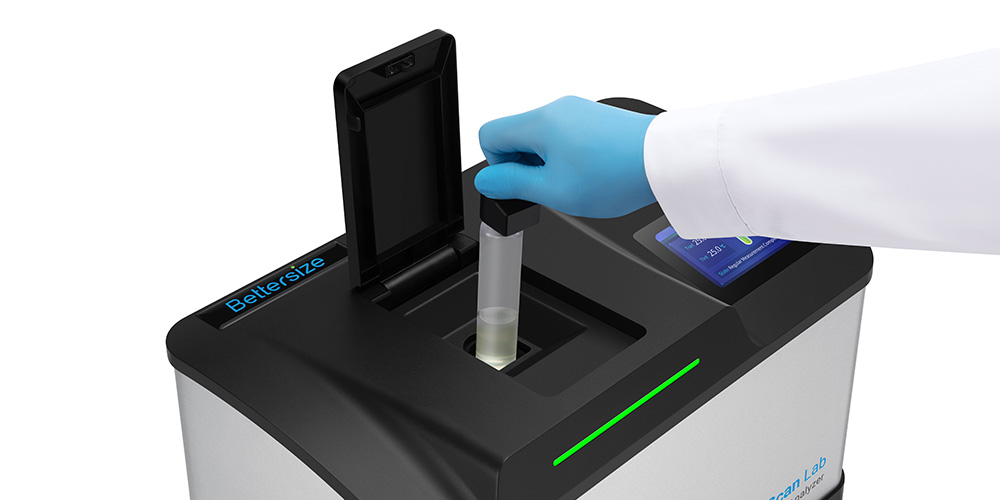
BeScan Lab
18 มิถุนายน 2567
ผู้ชม 286 ผู้ชม
BeScan Lab
The BeScan Lab is a versatile, sensitive, and reliable stability analyzer utilizing Static Multiple Light Scattering (SMLS) technology. It is widely employed in formulation development and product quality control. This analyzer can handle a broad range of sample concentrations (up to 95% v/v) and various types such as emulsions, suspensions, and foams, with temperature scanning capabilities up to 80°C. BeScan Lab offers both qualitative analysis and quantitative detection of destabilization, aiding in achieving long-term product stability and optimal shelf life.
Features and Benefits
- Real stability analysis for dispersions with volume fraction up to 95%.
- Particle size ranges from 10 nm to 1 mm.
- Non-destructive testing: non-contact, non-diluting, and non-shearing.
- Data acquisition with a resolution of 20 μm enables quicker observation of sample stability than with the naked eye.
- Precise temperature control up to 80°C to accelerate unstable phenomena.
- "One-to-many" system enables simultaneous testing of different samples with one software.
- Identification of various unstable phenomena: creaming, sedimentation, flocculation, coalescence, and breaking.
- Quantification of destabilizations and study of mechanisms.
Measurement Principle
Static Multiple Light Scattering (SMLS) is employed to characterize the stability of dispersions. Within BeScan Lab, a setup comprising two detectors and an LED light source ascends along the sample cell to conduct sample scanning. In the case of concentrated samples, the backward detector is employed to detect backscattered signals, while for diluted samples, the forward detector is utilized to detect transmitted signals.
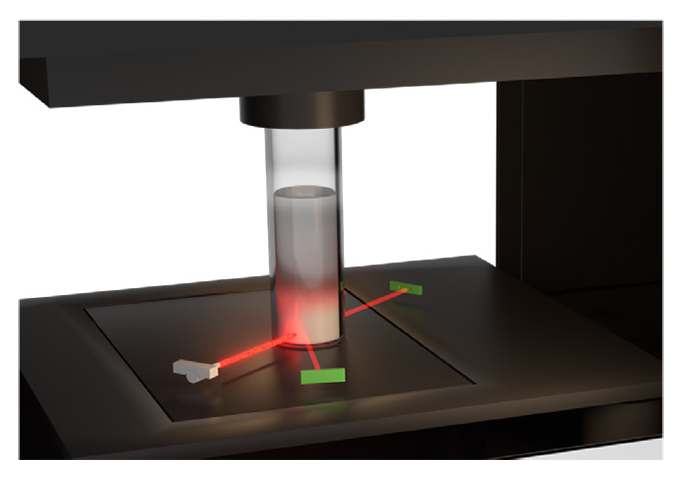
The sample will undergo scanning every 20 μm vertically to capture changes in transmitted and backscattered signals, indicating destabilization. Following each scan, an instability index (IUS) can be computed. Short-term or Long-term stability can then be assessed based on the trend of IUS.

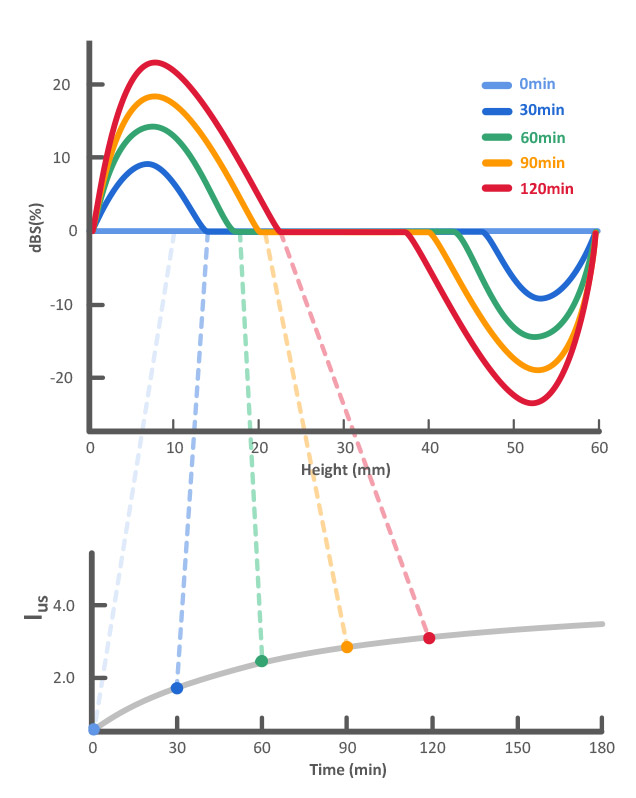
Mean particle size measurement can be implemented by analyzing transmission, backscattering, or particle migration rate. Investigation of particle size facilitates the research on unstable phenomena.
Applications
Petrochemicals, Pharmaceuticals, Agrochemicals, Food & Beverages, Chemicals, Paints, Inks & Coatings, Ceramics, Battery & Energy

Simple and Intuitive Software
With our powerful software, the BeScan Lab Stability Analyzer enables rapid and highly sensitive testing, facilitating the characterization of unstable phenomena.
Qualitative analysis:

Quantitative analysis:
♦ Instability index (IUS)
The stability can be quantitatively analyzed using IUS, which is determined by integrating the variations in the sample.
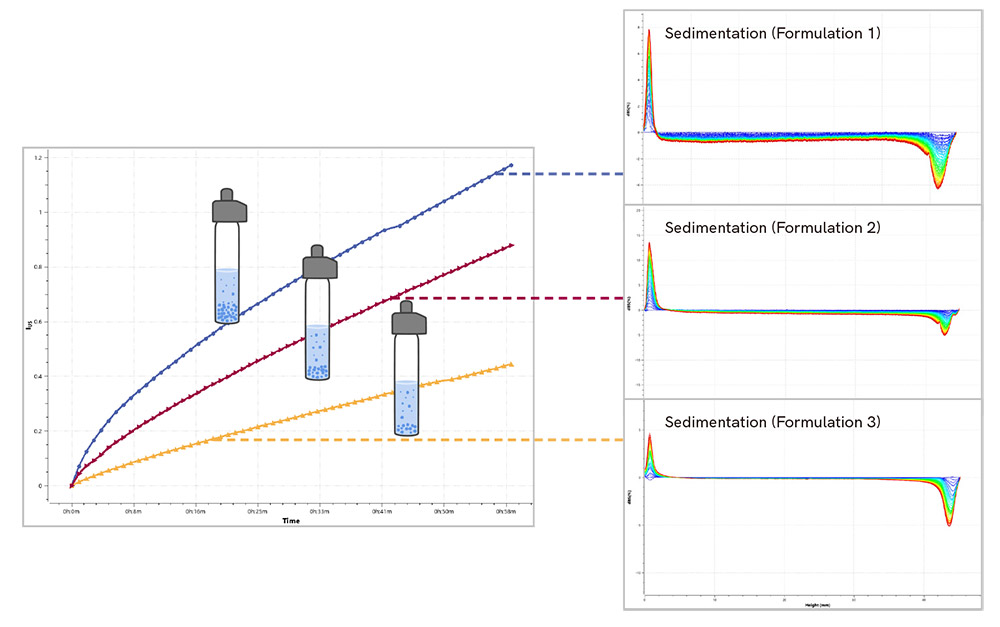
♦ Radar chart
Global and local instability indices for each scanning are illustrated in form of a radar chart, intuitively providing a way to investigate local stability (top, middle, and bottom).
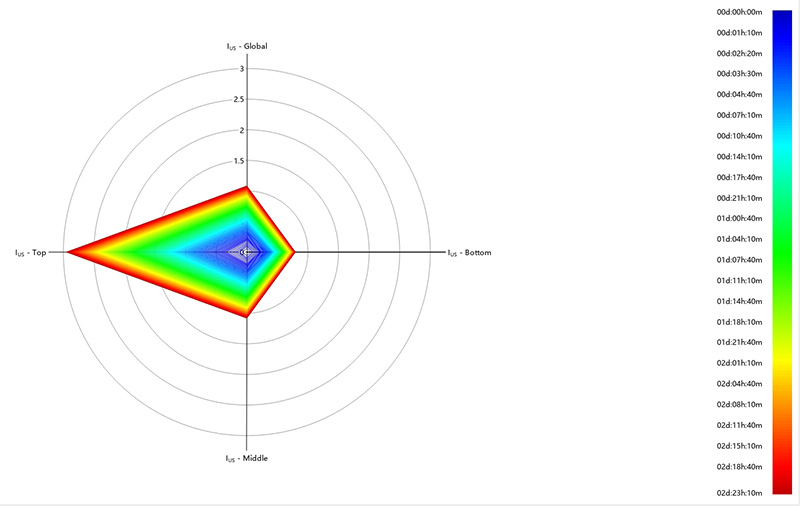
♦ Temperature trend testing
Temperature trend testing enables stability analysis over different temperatures. Temperature is a critical factor that affects system stability. It is of vital importance to find out the change point.
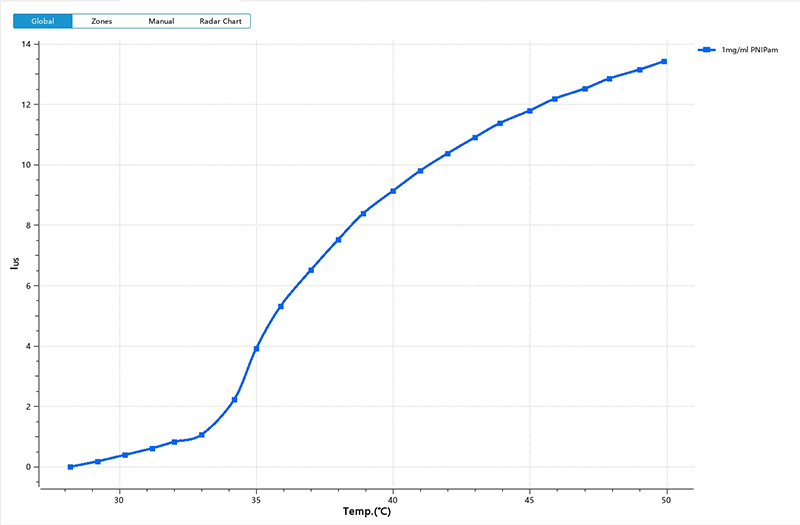
♦ Peak thickness analysis
Scatter plot of peak thickness demonstrates how fast the particles settle or float upward. Besides, the mean particle size based on gravitational liquid sedimentation can be obtained.
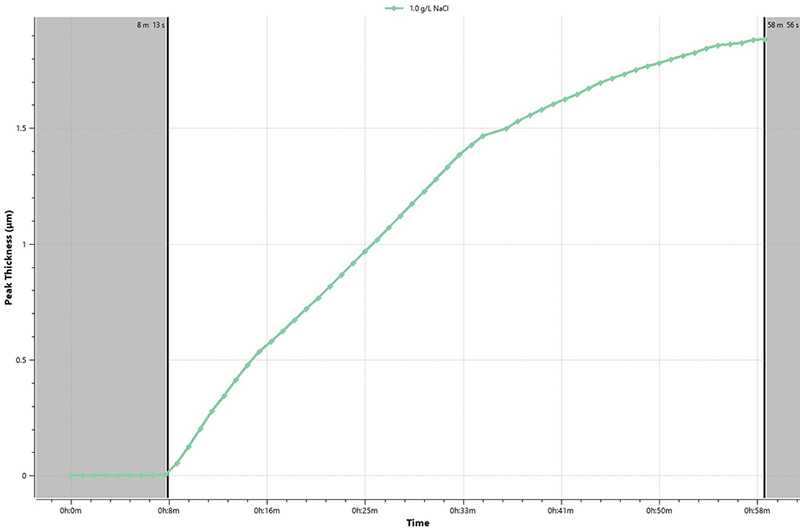
Specification
| Parameters | Values |
| Measurement principle | SMLS (Static Multiple Light Scattering) |
| Detection angle | 0° transmission and 135° backscattering |
| Light source | 850 nm LED |
| Scan step | 20 μm |
| Maximum volume fraction | 95% |
| Measurement range of particle size | 0.01 - 1000 μm |
| Temperature range | RT+5 ℃ - 80 ℃ (±0.5 ℃ ) |
| Sample volume | 4 - 25 mL |
| Measurement mode | Regular/Fixed point/Temp. trend |
| Dimension | 460(L) x 260(W) x 280(H) mm |
| Weight | 13.5 kg |
| Power | AC100 - 240 V, 50 - 60 Hz, 3.8 A |
| ISO compliance |
ISO/TR 18811:2018, ISO/TR 13097:2013 ISO/TR 21357:2022, ISO/TS 22107:2021 |
* Sample and sample preparation dependent



